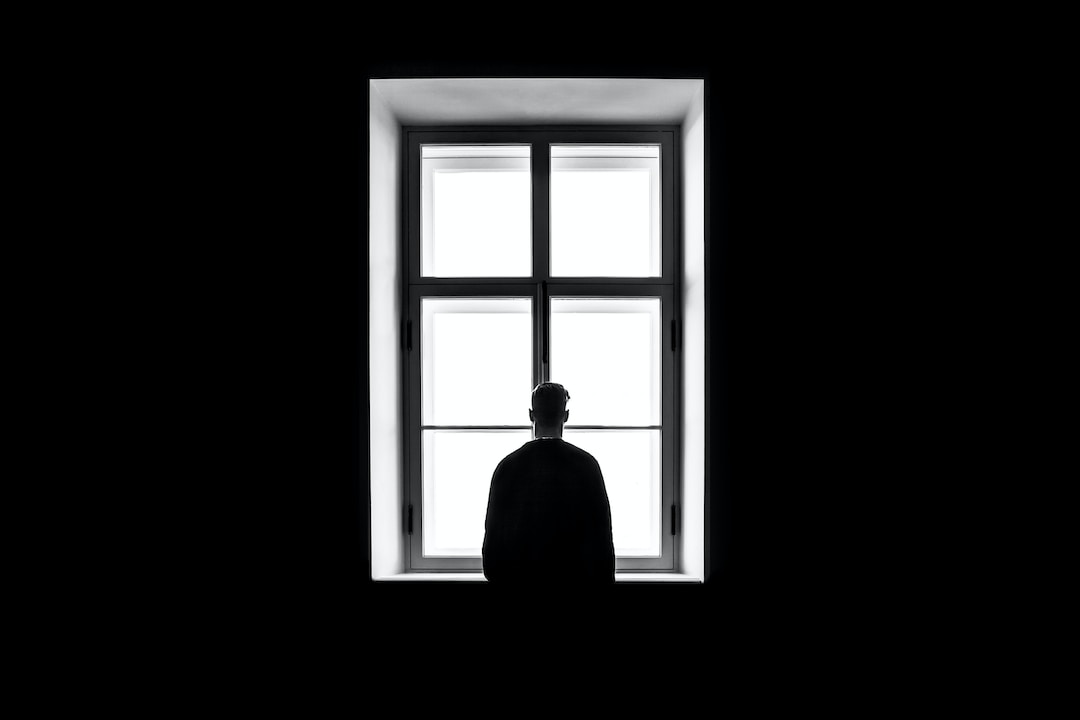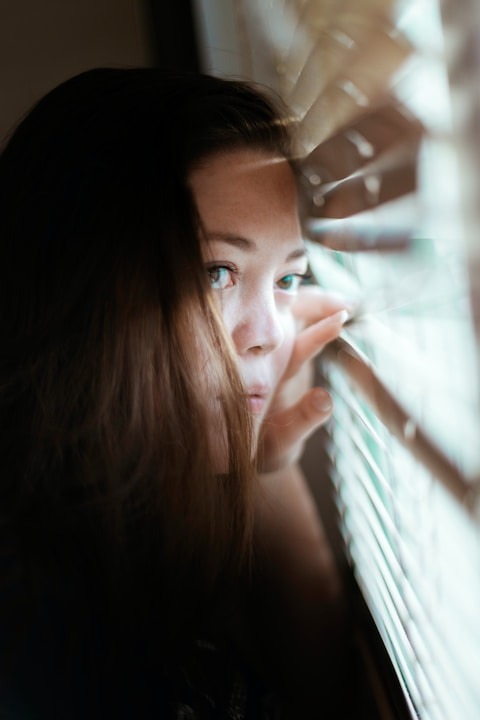
Think about the last time something perfect happened to you. Did you share it with anyone? How about your last birthday? Did you celebrate with your family and friends? For most of us, the answer is yes. But as we age, our family and friends network starts to shrink. It exposes us to social isolation and depression, and since humans are social creatures, loneliness, and isolation can harm their mental health and well-being.
According to surveys, seniors generally rank family and friends as the most valuable assets in their lives after health. It is only in the form of relationships that we can experience the feeling of loving and being loved, as well as the experience of being valuable, and this, in turn, has countless positive effects on our mental health.
But inevitable changes and transformations occur in life; some may be difficult and unpleasant for anyone. A day will come when children will leave home forever, loved ones and friends will finally leave us, and their empty place will remain among us forever. In addition, we may experience loneliness and isolation at some point in our lives due to other reasons such as immigration, change of residence, or social restrictions caused by Corona.
We have examined the mutual effects of isolation and mental health on each other. Also, we discuss some signs and symptoms that indicate a person may need support and how people deal with loneliness and isolation.
What is social isolation?
Being alone is not necessarily bad. Most people want to be alone, at least sometimes. Being alone can bring peace, self-knowledge, and inner balance. But on the other hand, “social isolation” usually refers to unwanted and unhealthy solitude.
People who suffer from social isolation may not have close friends or colleagues in their lives, and because of this, they often feel lonely or depressed. They may also suffer from low self-esteem or anxiety. The following warning signs associated with unhealthy social isolation indicate a person’s poor social relationships:
- Avoiding social interactions (including relationships that were once pleasurable).
- Frequently canceling shared plans and appointments and feeling comfortable after canceling plans
- Experiencing feelings of anxiety or panic when thinking about social interactions and situations
- Feeling distressed when alone
- Feeling fearful about engaging in social activities
- Spending a lot of time alone and very limited contact with others
Social isolation can include emotional isolation, an unwillingness or inability to share one’s feelings with others. People who are socially isolated are deprived of interactions and emotional support, and this issue can make them emotionally numb; It means completely separating them from their emotions and feelings.
Isolation and loneliness.
When professionals study the causes and effects of isolation, they distinguish between social isolation and loneliness. Social isolation is the lack of social relationships or lack of social contact. Loneliness is a mental feeling of isolation. A person can be socially isolated but not feel alone. Another person may also feel lonely even though different people surround him.
However, isolation and loneliness are inextricably linked. Examining the causes, symptoms, and effects of loneliness sheds light on the possible adverse effects of social isolation.
What factors cause loneliness and social isolation?
Many conditions make a person distance himself from others or choose isolation and loneliness.
Partner violence: People who are abused or mistreated in their family relationships sometimes avoid contact with other family members, friends, or colleagues because they do not want to reveal their situation to others.
Loss of loved ones: Isolation after the death of friends or family members can be expected, especially for adults who have lost many loved ones and peers.
Issues related to mental health: issues such as anxiety, depression, and low self-confidence are often caused by social isolation, but sometimes the existence of these issues can also cause isolation and loneliness in people.
Living in a remote place: People who live in remote areas or are geographically separated from family and friends due to job duties (e.g., military service) can feel isolated.
Physical and movement disorders: Physical problems that limit a person’s mobility can reduce a person’s ability to have social interactions. Some people with physical disabilities feel ashamed of their disability or appearance, which can prevent them from social interaction to a large extent. Hearing and vision disorders can also cause a feeling of isolation.
Social media: Communicating through social media helps some people connect with others, but if it replaces meaningful conversations and in-person socializing, it can lead to isolation.
Unemployment: The shame of losing a job or being unable to find a new job can lead to personal isolation.
Social isolation can also result from social distancing measures such as those taken during the coronavirus pandemic.
Social distancing and social isolation.
Social distancing means avoiding close or frequent interaction with people to limit the spread of infectious diseases. In addition, quarantine is one of the most important preventive measures for corona patients, which includes separating people with this disease from others. Social distancing guidelines enforced by governments during the coronavirus pandemic have stopped or restricted people from places like schools, places of worship, restaurants and coffee shops, movie theaters, and sporting events.
Social distancing has also caused profound changes in people’s interactions in the workplace. Many businesses adopted a work-from-home policy, while others were forced to close due to a downturn in the market or a drop in in-person referrals. A study by a Stanford University researcher found that 42% of the US workforce works full-time from home during the coronavirus-related recession, while 33% have lost their jobs.
With reduced or eliminated social activities related to work, school, religious places, and leisure time, people’s regular and face-to-face interaction opportunities are usually limited only to the home environment. The sudden and severe decrease in social interactions due to the corona disease has led to a feeling of loneliness in many people. Loneliness and isolation significantly impact people’s mental and physical health and contribute to problems such as depression, anxiety, and dementia. For this reason, the World Health Organization (WHO) encourages people to socialize with friends and acquaintances remotely by phone or through online communication platforms.
Loneliness and mental health.

According to the World Health Organization, social communication can have a very positive effect on mental health. Many countries now consider loneliness a mental disorder. Social connection is vital for both mental and physical health. Some researchers even believe that relationship with other people is a biological need and essential for our health and survival.
Social isolation is a bit difficult to define, but what matters most is whether or not a person feels alone in their situation, which scientists call a “sense of isolation.” It is the feeling of loneliness or isolation that can have adverse effects on a person’s mental and physical health.
Some of the problems that isolation and loneliness can cause for our mental health include:
- Depression
- Anxiety
- Schizophrenia
- Suicide
- Dementia
- Alzheimer
Researchers have also identified a significant relationship between loneliness and physical diseases like heart problems and breast cancer.
Groups at risk of loneliness.
The world is struggling with the Corona pandemic, and health organizations worldwide are asking people to practice social distancing and minimize social interactions. Although this distance is an effective method to prevent the spread of disease, it may lead to people’s loneliness and isolation in some cases. The most important of these groups are adults and older people.
One of the reasons older people are more at risk of loneliness is that they often experience essential changes at this point in their lives, such as:
- Retirement
- death of wife
- Separation of children and the start of independent life
- Age-related diseases
These changes can affect people’s social relationships and make socializing more difficult. People with disabilities or other physical problems that limit physical activity may also have difficulty socializing and communicating outside the home.
Age and underlying diseases are also risk factors that increase the probability of severe Corona in people. The best way to protect vulnerable people is to practice social distancing, which can exacerbate feelings of loneliness for people who already feel isolated.
Loneliness, in general, is increasing globally. Some experts believe that rising people experience isolation and loneliness regularly. Some countries, including Germany, Australia, and England, think they’re facing an epidemic of loneliness.
Some events and social trends may also cause social dissociation and diminishing relationships between people. For example, the average household size in most parts of the world has decreased, and more couples choose not to have children.
Researchers also believe that nowadays, the participation of people in different social groups has decreased on average in all parts of the world, and the size of these groups has decreased significantly compared to previous decades.
Other events that may make people more likely to be lonely include:
- Divorce
- Living alone
- Single
Signs and symptoms of loneliness that you should watch out for.
Some of the signs and symptoms that indicate the impact of isolation and loneliness on a person’s mental health can include the following:
- Feeling depressed and anxious
- Aggressive behavior
- Passive attitude
- Poor sleep quality
- Cognitive decline
- Weak memory
Neglecting oneself or not paying attention to oneself
Researchers believe that the consequences of loneliness and isolation differ depending on the person’s age.
For example, people aged 18-49 may have trouble concentrating or eating more if they experience feelings of loneliness and isolation. But children and teenagers may face more cognitive, behavioral, and emotional problems if they experience loneliness.
How to maintain our social relationships?
Finding ways to connect with others can reduce the damaging effects of loneliness on people’s mental health.
Communicating with loved ones, friends, and people needing your help has taken many forms. People can share using different applications and platforms in the following ways:
- Phone and SMS
- Social Networks
- Video chat platforms
How to take care of others in front of loneliness?
Health protocols in the time of Corona have affected the social relations of all people and have faced all of us with unwanted isolation. In this situation, contacting community members at risk of isolation and loneliness is better.
Visiting the door of the neighbors’ house and socializing by keeping their distance and following hygiene tips or calling them on the phone can remind them that they have friends nearby. Using Internet messengers or video chats can also help reduce feelings of loneliness in people.
Sending food packages or other essential goods to vulnerable people can also provide support and connection to people at risk of isolation and loneliness.
Also, although many different businesses and places are closed during the Corona disease, remember that it is possible to use sports programs or participate in online training courses. Participating in online activities with other people can create a sense of connection and reduce feelings of loneliness.
When do you need help?
People who feel lonely should seek help from a doctor or therapist if they see signs and symptoms of anxiety or depression. These symptoms may include:
- Feeling restless or irritable
- Constant worry
- Too much or too little sleep
- Inability to concentrate
- Suicidal thoughts
When visiting others, it is better to pay attention to whether that person has a good nutritional status, sleeps well, or does he take good care of himself. If you notice that he is having problems with these things, he may need help.
The Corona epidemic and social distancing policies have isolated all people somehow and affected our social relationships. But we must not forget that loneliness may have severe consequences for our mental health and can aggravate conditions such as depression, anxiety, and dementia.
Socializing at a distance, for example, through online platforms, can help reduce feelings of loneliness and lessen its unpleasant effects, especially for vulnerable people.
Anyone who has experienced changes in their mental or physical health due to isolation should immediately see a doctor or counselor and get professional help.
What is social isolation?
Social isolation usually refers to unwanted and unhealthy solitude. People who suffer from social isolation may not have close friends or colleagues in their lives, and because of this, they often feel lonely or depressed. They may also suffer from low self-esteem or anxiety.
What are some signs of unhealthy social isolation?
Signs of unhealthy social isolation include avoiding social interactions, frequently canceling shared plans and appointments, experiencing feelings of anxiety or panic when thinking about social interactions and situations, feeling distressed when alone, feeling fearful about engaging in social activities, and spending a lot of time alone with very limited contact with others.
What factors can cause loneliness and social isolation?
Factors can include partner violence, loss of loved ones, mental health issues, living in a remote place, physical and movement disorders, over-reliance on social media, unemployment, and social distancing measures such as those taken during the coronavirus pandemic.
What is the difference between social isolation and loneliness?
Social isolation is the lack of social relationships or lack of social contact. Loneliness is a mental feeling of isolation. A person can be socially isolated but not feel alone. Another person may also feel lonely even though different people surround him.
What are some mental health problems that isolation and loneliness can cause?
Isolation and loneliness can lead to depression, anxiety, schizophrenia, suicide, dementia, and Alzheimer’s disease.
Who are at risk of loneliness?
Adults and older people are at risk of loneliness, especially those who experience essential changes in their lives such as retirement, death of a spouse, separation of children, and age-related diseases. People with disabilities or other physical problems that limit physical activity may also have difficulty socializing and communicating outside the home.
What are some signs and symptoms of loneliness?
Signs and symptoms of loneliness can include feeling depressed and anxious, aggressive behavior, passive attitude, poor sleep quality, cognitive decline, weak memory, and neglecting oneself or not paying attention to oneself.
How can we maintain our social relationships?
People can maintain their social relationships by communicating with loved ones, friends, and people needing help through different applications and platforms such as email, phone and SMS, social networks, and video chat platforms.
When should a person seek help if they feel lonely?
People who feel lonely should seek help from a doctor or therapist if they see signs and symptoms of anxiety or depression. These symptoms may include feeling restless or irritable, constant worry, too much or too little sleep, inability to concentrate, and suicidal thoughts.







